Politics and Government
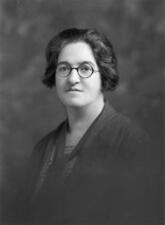
Marion Phillips
As Chief Women’s Officer of the Labour Party, Marion Phillips was one of the most important figures in the campaign to free women from domestic drudgery at the beginning of the twentieth century. Her work brought a quarter of a million women into the Labour Party.
Rebecca Machado Phillips
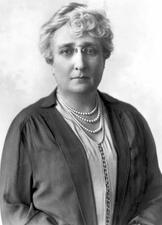
Rosalie Solomons Phillips
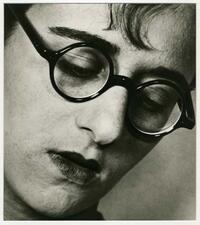
Photography in Palestine and Israel: 1900-Present Day
Although women photographers long struggled for recognition and appreciation in Palestine and Israel, in recent years awareness of their roles and contributions to photograph has increased. The activity of women photographers who focus on gender issues has increased dramatically, while female curators and academics are gaining new perspectives on Jewish female photographers, re-evaluating their role in the development of photography in Israel.
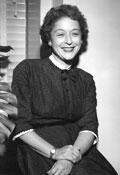
Harriet Fleischl Pilpel
Harriet Fleischl Pilpel was a prominent participant and strategist in women’s rights, birth control, and reproductive freedom litigation for over half a century.
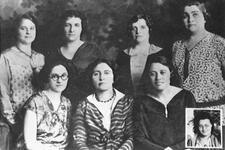
Pioneer Women in the United States
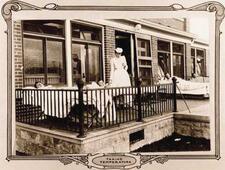
Seraphine Eppstein Pisko
Nora Platiel
The Russian Revolution of 1917 made a convinced socialist of Nora Block and inspired her to study law. After leaving Nazi Germany for France and then Platiel, Platiel returned home, eventually becoming the first woman director of a German district court and being elected for three terms in the Hessian State Parliament.
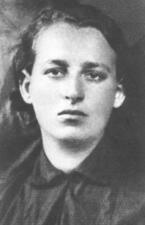
Frumka Plotniczki
Whether in her family, the kibbutz training program or the movement, what set Plotniczki apart was her ability to combine penetrating, uncompromising analysis with a loving heart and maternal compassion.
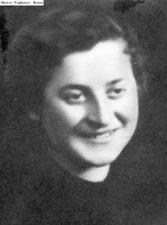
Hantze Plotniczki
Hantze Plotniczki was an active leader of and participant in resistance movements during World War II. She had a gift for connecting with people and inspiring love and action from other members of the movement.
Pauline Podbrey
Pauline Podbrey was a committed Communist and anti-Apartheid activist. A Lithuanian child migrant to South Africa, she moved away from her Jewish roots and endured exile as a result of her mixed-race marriage, only to become disillusioned with Communism.
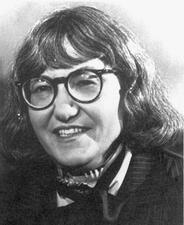
Poetry in the United States
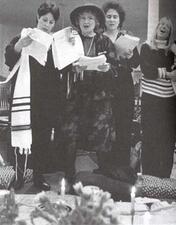
Letty Cottin Pogrebin
Letty Cottin Pogrebin--a writer, activist, editor, organizer, and advocate--gained national recognition first in the national women’s movement and later as a spokesperson for Jewish feminism and issues related to Israel-Palestine. In her work, Pogrebin writes intimately about her own life’s complexities, while echoing the experiences of millions of women.
Anna Sophia Polak
Anna Polak was an important figure in the Dutch women’s movement in the early twentieth-century, who served as director of the National Bureau of Women’s Labor in The Hague for 28 years. Her controversial views on the importance of involving women in the working world led to her international recognition; she was beloved and admired by many.
Poland: Interwar
A minority habitually ignored by scholars, Polish-Jewish women played important roles in the changing cultural and political framework of the interwar years.
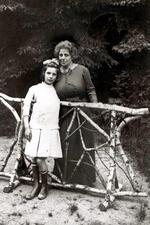
Justine Wise Polier
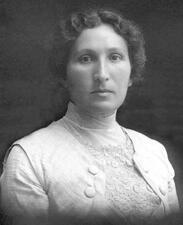
Political Parties in the Yishuv and Israel
Women’s political parties have played an important, though to date poorly acknowledged, role in the social and political history of Israel. They had a significant impact on women’s participation in power center, political and other; they placed a major part in the struggle for women’s right to vote and to be elected; they raised the issue of violence against women, and much more.
Politics in the Yishuv and Israel
Virginia Morris Pollak
During World War II, sculptor Virginia Morris Pollak used her deep understanding of clay, plaster, and metal to revolutionize reconstructive surgery for wounded servicemen. This earned her a presidential citation, and she was later appointed to JFK’s Commission for the Employment of the Handicapped. Pollak also co-founded her own sculpture studio and chaired the Norfolk Fine Arts Commission, beautifying her hometown with an outdoor sculpture museum at the Botanic Garden.
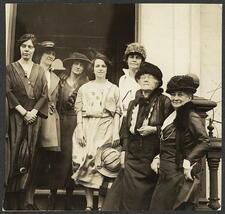
Anita Pollitzer
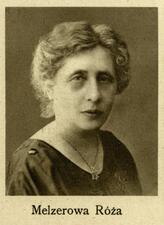
Róża Pomeranc-Melcer
Róża Pomeranc Melcer was a social reformer, feminist, and Zionist active in Galicia and later in Eastern Lesser Poland. She was the first and only Jewish Member of Parliament in the Second Polish Republic (1918-1939) and championed the goals of modern Zionist women's politics.
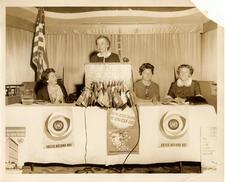
Josephine Wertheim Pomerance
Josephine Wertheim Pomerance spearheaded efforts for nuclear arms control as founder and head of the Committee for World Development and World Disarmament (CWDWD). She co-founded the CWDWD in 1950, helped to finance the organization, and led its efforts to convince Americans to support global development and oppose nuclear weapons.
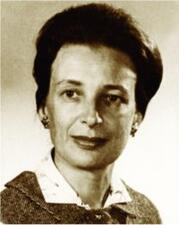
Judith Graham Pool
Judith Graham Pool was a physiologist whose scientific discoveries revolutionized the treatment of hemophilia. Pool isolated factor VIII and created a concentrate made from blood plasma that could be frozen, stored, and used by hemophiliacs in their own homes.
Tamar De Sola Pool
Born into a family deeply involved in Jewish activism and scholarship, Tamar De Sola Pool spent over a decade as both a Hadassah chapter president and later Hadassah’s national president. She wrote two books in collaboration with her husband, volunteered at displaced persons camps in Cyprus, and helped resettle Jewish children in Palestine with Hadassah.
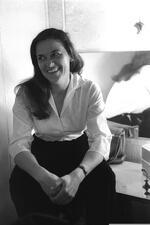
Orna Porat
Orna Porat was a leading actor at the Cameri Theater who also performed at the Habimah, the Beer-Sheva Municipal Theater, Beit Lessin, and the Yiddish Theater. After immigrating to Israel from Germany, Porat struggled to learn Hebrew and break into the theater world, but ultimately she was successful. She is known for serving on the Cameri’s administrative board and founding the Cameri Children’s Theater.


